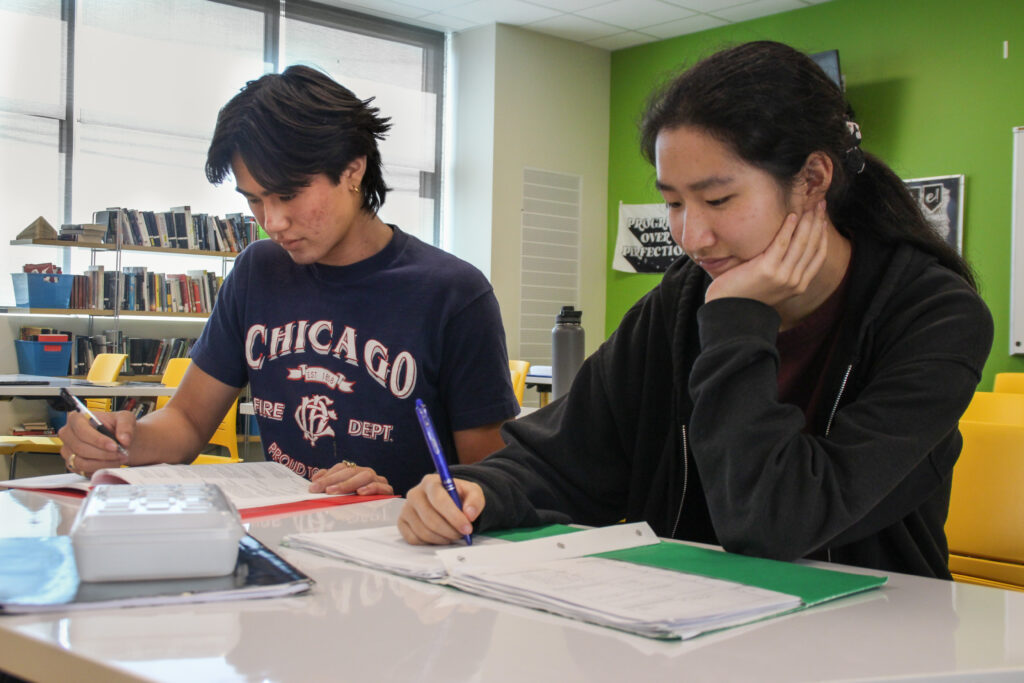
By Annabel Lee
Staff Writer
National Hispanic Recognition Award
On Sept. 16, junior Rachel Cadavid and seniors Lucas de Paula, Zane Pinedo and Kaitlyn Reyes received the National Hispanic Recognition Award. Granted by the College Board, the award recognizes approximately 5,000 students a year, of the 400,000 that apply.
“I first heard about the opportunity in Psychology class when Mr. Lopez told me I qualified for an award on Hispanic Heritage,” Pinedo said. “I decided to apply and filled out the application on College Board.”
Although it is not a scholarship program, the National Hispanic Recognition award aims to recognize high performing students of Latinx and Hispanic descent. It is part of the College Board’s National Recognition Programs which include other awards to acknowledge African American, Indigenous and rural town students.
The award uses Preliminary SAT scores to determine who qualifies. Additionally, students must have a 3.5 GPA or higher and identify as Hispanic or Latinx. Award recipients represent a wide variety of ethnicities, including many mixed race students.
“Receiving the Hispanic Recognition Award was meaningful to me because it shined a spotlight on the side of me that I feel is often overshadowed by my desire to fit in with my fully Asian peers,” Cadavid said. “This award made me proud to be Hispanic and served as a reminder to appreciate all of the parts that make me whole.”
National Merit Scholar Semifinalists
This fall, TCHS seniors Jasmine Liu, Keilana Pang and Ellen Tang are among the Class of 2024 National Merit Semifinalists. The National Merit Scholar Program is an academic competition and student scholarship program based on the PSAT scores from each state. Each fall, millions of students across the country take the exam in the hopes of qualifying for this honor.
“I first heard about National Merit in my sophomore year after taking the PSAT,” Tang said. “I was curious and looked into it, which was how I discovered the scholarship and process involved.”
To qualify, a student must score within the top 1% of their state, meaning California has one of the highest score cutoffs in the country. Students who meet this cutoff are considered “commended scholars” and can apply to become finalists. The majority of these semifinalists will then become finalists and be eligible for scholarships.
“It felt like a culmination and validation of the work I put into studying,” Tang said. “If I manage to get scholarships for college, then it will have paid off.”
